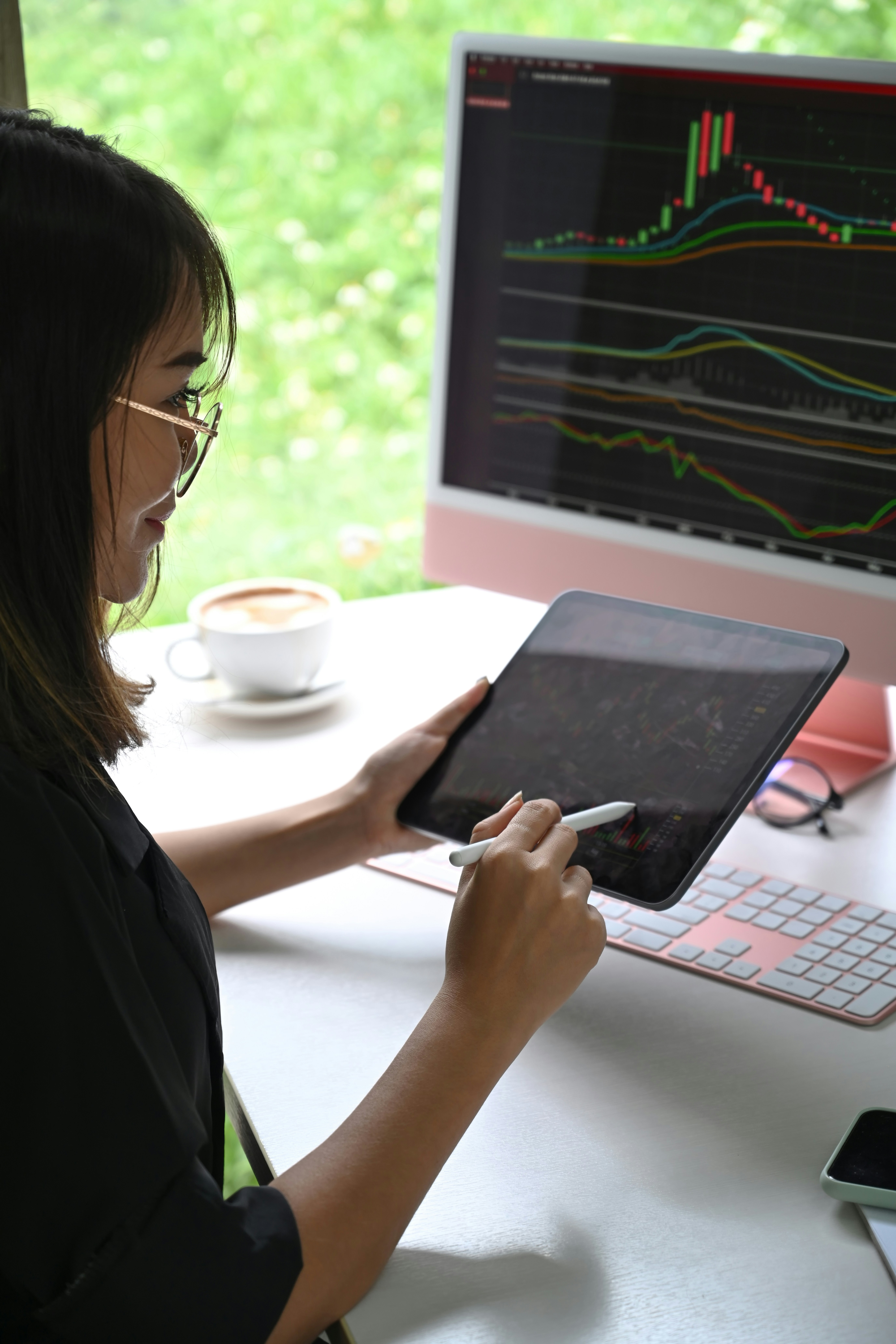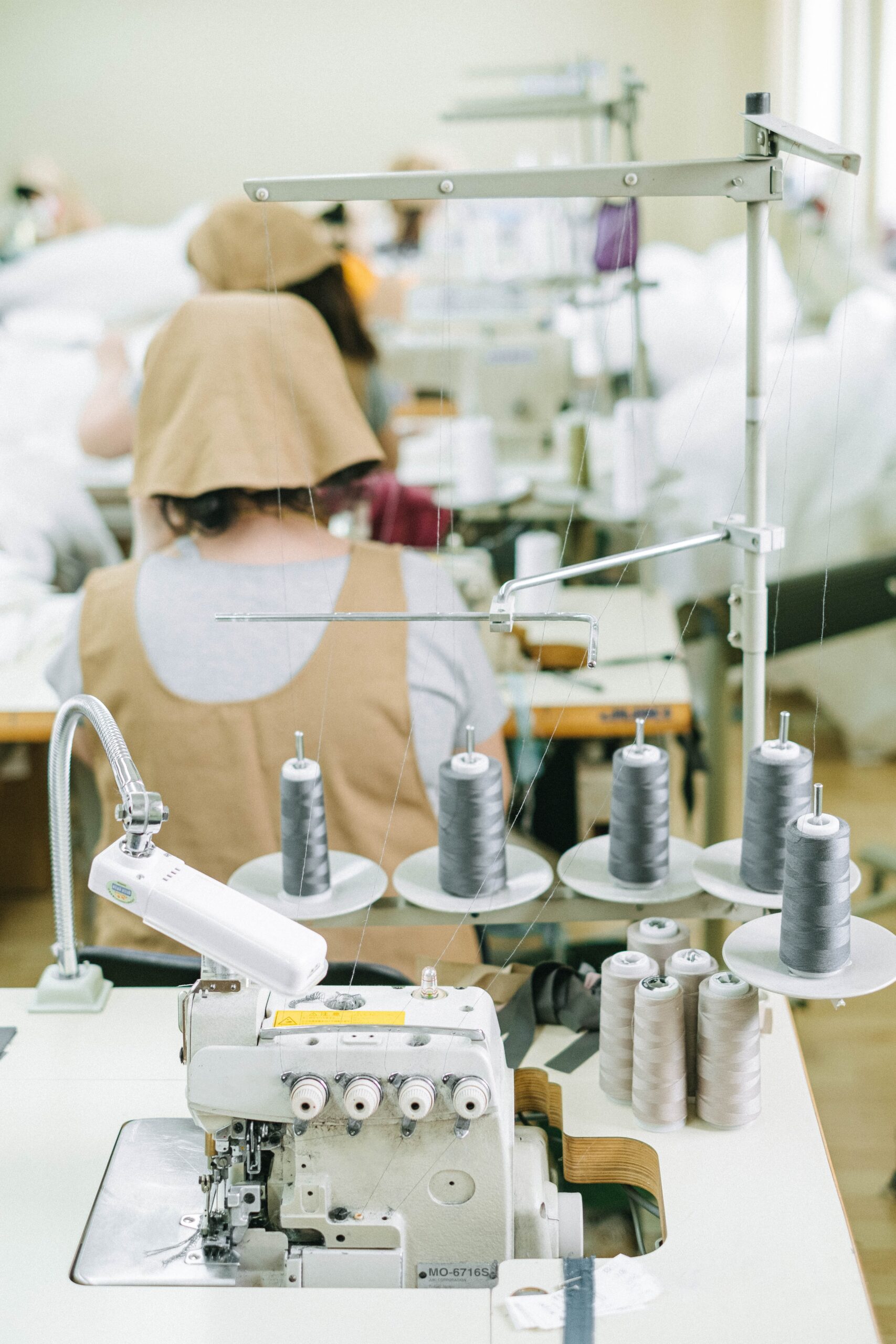Research > Technology, Trade & Human Capital
Technology, Trade & Human Capital
In times of global competition, technological innovation and education take centre stage. Starting with the Industrial Revolution, it is technological advance that allowed nations to dramatically enhance the wealth of their populations. New technologies require new expertise: without an able carpenter, an advanced sawing machine will not produce a piece of furniture. Therefore, the two related challenges countries face today are the development of the productive capacity of their workforces, and the development of new technologies that enhance that productivity. However, this does not happen in isolation—the world has become an increasingly competitive place, with advantages as well as huge challenges. The possibility to trade products in international markets allows countries to specialise in particular industries and exploit comparative advantages, thus further enhancing efficiency and productivity. Technological development, education, and trade are therefore key pillars of a country’s wealth and the welfare of its population.
Projects

Learning in Firms and the Sources of Wage Inequality
By studying the existence, magnitude, and causes of differential learning opportunities firms offer, this project will shed new light on two important questions in labor economics: What causes differences in human capital accumulation across workers? And what are the sources of wage inequality?
In the canonical model of wage determination wages depend on a worker's quality, firm-specific pay premiums, and other observed worker characteristics, but not on differences in learning opportunities across firms. Micro-level evidence suggests, however, that firms differ in wage growth opportunities (e.g., due to differences in training provision). The first part of the project will study the importance of such differential learning opportunities across firms by extending the canonical model of wage determination. We do so by estimating how past employment trajectories of workers in different firms affect their current wages. The second part of the project will theoretically and empirically analyze the importance of this firm-specific learning component for our understanding of the causes of wage inequality. We will study (a) the importance of the direct contribution of firm-specific learning wage dispersion and (b) whether ignoring such differential learning opportunities exaggerates the role of other factors like worker quality or the sorting of good workers to good firms in existing studies of wage inequality. The analysis is based on German matched-employer employee data covering the universe of employees

The Evolution of Earnings Inequality: An Analysis of Cross-Section and Life Cycle Dimensions
While the German wage distribution remained relatively stable until 1995, inequality sharply increased thereafter but contracted again following the Great Recession. The first part of this project will investigate the causes behind this notable reversal and explore the key mechanisms driving it.
In the part, we will develop a comprehensive framework to examine how cross-sectional inequality relates to the evolution of life cycle inequality. As a first step, we will estimate a state-of-the-art statistical model of earnings dynamics to understand the evolution of life cycle inequality and its underlying drivers. Through counterfactual simulation analyses, we will examine how the trends in cross-sectional inequality align with life cycle inequality for subsequent worker cohorts and identify which factors in the life cycle model are most critical for the changes in cross-sectional inequality.
This project leverages German social security data from 1975 to 2019, enabling us to map detailed individual employment histories. We will complement this with survey data sources such as the German Socio-Economic Panel, the IAB Job Vacancy Survey, and the BIBB Employment Survey.
Project Participants:
Takahiro Toriyabe (Hitotsubashi University)
Uta Schönberg (University College London)
Eric Klemm (University College London and CReAM)
Carl Gergs (University College London, CReAM and RFBerlin)

Trade Shocks and Firm and Labor Market Adjustments
In light of the rising trend of trade protectionism and market uncertainty, this project investigates how firms and labor markets adjust to adverse trade shocks, using the US-China trade war that began in 2018 as a case study. The impacts of this trade war extend beyond the two directly involved economies, influencing firms and workers globally. For instance, if Chinese firms redirect their exports from the US to markets like the EU, this shift can affect the prices and types of goods available in those countries. Such changes may reshape the competitive landscape for EU businesses, which face increased competition from Chinese products and cheaper inputs. By combining various data sources, this project aims to identify the channels through which Chinese firms and labor markets respond to trade shocks. Understanding these dynamics is essential for policymakers navigating the complexities of a world increasingly characterized by anti-globalization sentiments and trade tensions.
Project Participants:
Qinyue Luo (RFBerlin)

Productivity, Skills and Competitiveness: Challenges of the Global Economy
Industrialised economies had to adjust to substantial changes in the nature of the global economy over the preceding decades as China and other middle- and lower-income economies were increasingly integrated into global trade and production networks, and as technological changes induced further changes in production patterns. This project examines important and interrelated research questions addressing both the immediate and the longer run implications of these events: First, how relevant are indirect ‘upstream’ production chain effects (in addition to the direct effects) when it comes to the impact of trade on the labour market? Second, why were some advanced economies better positioned to take advantage of this wave of increased global trade—contrast Germany which took advantage of the opportunities brought about by this second wave of globalisation with other countries like the US that were less able to do so? Third, what is the technological adoption component of globalisation, again taking into account indirect ‘upstream’ and ‘downstream’ effects of differentiated technology adoption on labour market outcomes?
Project Participants:
Christian Dustmann (University College London)
Bernd Fitzenberger (Friedrich-Alexander-Universität Erlangen-Nürnberg and Institute for Employment Research, Nürnberg)
Alexandra Spitz-Oener (Humboldt-Universität zu Berlin)
Stan de Ruijter van Steveninck (University College London)
Jan Knuf (University College London)

Technology and Work
Most recent research on the impact of technology on the labour market focuses on automation, that is the ability of advanced technologies to substitute workers in performing routine, programmable tasks. However, the interplay between workers and technologies is much more complex. Digital tools complement the creative and analytical capabilities of workers, for example, and new tasks arise. In this project, we will shed light on the question of how workers whose jobs are subject to technology-driven adjustment shocks change the tasks they perform, paying particular attention to new tasks and tasks that are complementary to the capabilities of advanced technologies. The analyses will cover about 4 decades, from the late 1970s to the late 2010s, thereby covering the complete current phase of technological changes involving computers, software, robots, and other advances in computer technology, including artificial intelligence. The data allow us to investigate how the changing capabilities of technology impact skill requirements in the workplace and, most importantly, workers’ labour market outcomes in terms of job quality, employment, and wages.
Project Participants:
Giuseppe Pulito (ROCKWOOL Foundation Berlin)
Joonas Tuhkuri (ROCKWOOL Foundation Berlin)

Globalisation, Innovation and Population Health: The health impacts of economic changes to the labour market
This project aims to draw a detailed picture of how important economic trends such as globalisation and technological change have shaped public health over the past decades, in particular through the ways they have affected the labour market. These broad economic forces have changed the way that people work, shifting the occupational health hazards faced by the workforce. This project will explore how these shifts in the economy and the labour market have affected population health and how individuals’ behaviours have changed in response. By combining a variety of data sources on health information, working conditions, and health-related behaviours, and using structural modelling techniques, we will describe how individuals make decisions about their occupation over the course of a lifetime, the ways in which health has been affected by these factors, and how this relates to other determinants of changing population health.
Project Participants:
Christian Dustmann (University College London)
Courtney Brell (University College London)

Globalisation and the Spread of Diseases
This project aims to draw a detailed picture of how important economic trends such as globalisation are affecting population health. The increasingly global economy has led to greater transmissibility of diseases around the world, with direct consequences for public health. The project will explore how increased trade and mobility between countries has allowed for increased transmission of diseases, and will focus on an especially critical health issue: bacterial resistance to antibiotics. The WHO considers this to be the next and most important health issue worldwide. This project will combine data on health, antibiotic resistance and economic indicators at the country level over many years. It will develop a multi-country model to evaluate the economic and health consequences of the spread of antibiotic resistance, and to determine how efficient policies can be implemented.

Understanding Regional Inequalities: Technology, Education and Policies for Levelling Up
Regional inequalities in rich economies such as Germany are staggering. The richest county in Germany is nearly ten times as rich as the poorest county. What is more, there is surprisingly little convergence over time between regions. This is a puzzle, as theory predicts that regions initially lagging behind are bound to catch up with more developed regions, as has historically been the case in the US. We aim to study the roots of these regional disparities by tracing them back to the beginnings of technological inventions, in particular technological and educational investments during and after the Industrial Revolution, as well as policy choices, past and present. Understanding the origins of regional inequalities and the reasons for their persistence is of paramount importance as they determine inequality of opportunities not only in the present, but also moving into the future. Our analysis will investigate the mechanisms behind persistence in disadvantage, thereby shedding light on policy choices conducive to overcoming historical disadvantages. This project will not only contribute to our understanding of regional inequalities in contemporary Germany but will also have important implications for policy decisions to be made during the AI revolution, with consequences for future growth and prosperity.
Project Participants:
Hyejin Ku (University College London)

Labor Market Networks, Efficiency, and Inequality
Social connections play a crucial, but ambiguous role in the labor market. On the one hand, efficiency may be improved through, for example, lower search frictions. But on the other hand, “knowing the right people” may allow workers to end up in jobs for which their skills are not well-suited.
This project will use detailed data on all employer-employee matches in Denmark from 1980-2020 to study how social connections shape the allocation of workers in the labor market. By identifying former co-workers, family-members, and former schoolmates, we will also be able to distinguish between the importance of different types of networks. Equipped with a full mapping of social connections for the entire working age population in Denmark, we will investigate how working in the same workplace as a “network member” affects match quality and efficiency in the labor market, whether connections lead to over- or undereducation in various jobs, and whether connections generate between-group inequality (e.g., by family background or gender).
The findings from the proposed research will have important policy implications for a wide range of questions relating to efficiency, inequality, and firms’ hiring practices at both aggregate and more granular levels. Our findings will also contribute to the ongoing debate surrounding anti-nepotism and anti-cronyism rules in the public and private sectors.
Project Participants:
Rasmus Landersø (ROCKWOOL Foundation Research Unit)
Shmuel San (Hebrew University of Jerusalem)
Uta Schönberg (University College London)